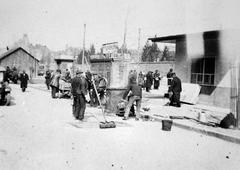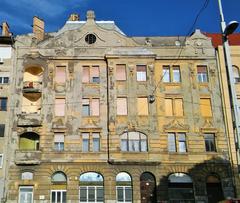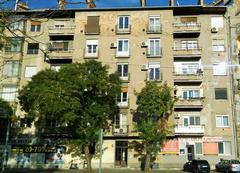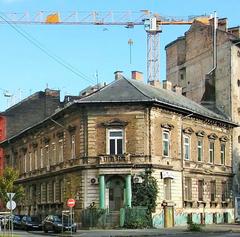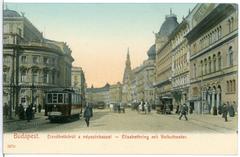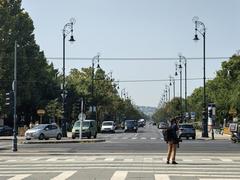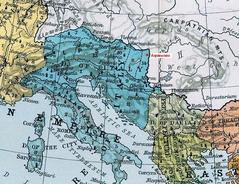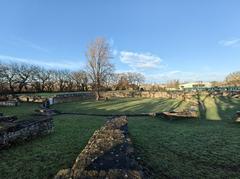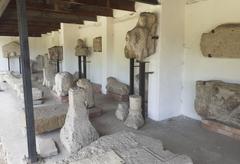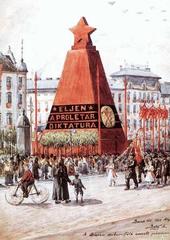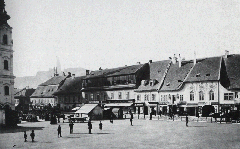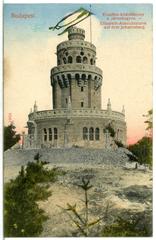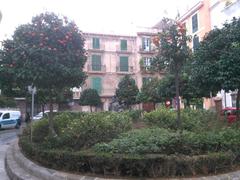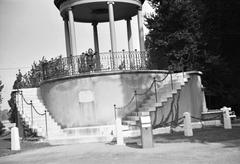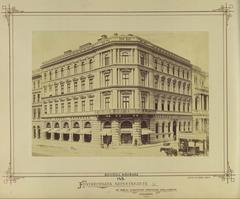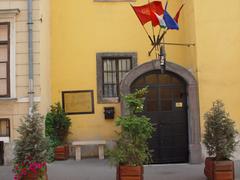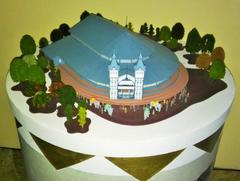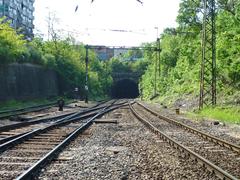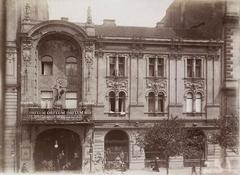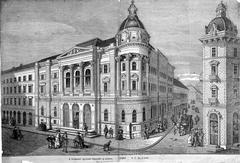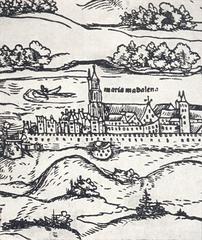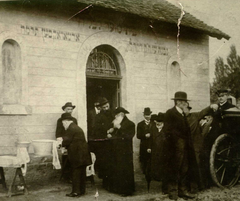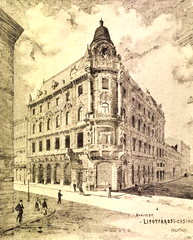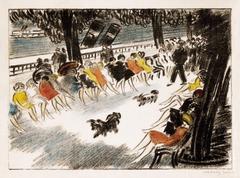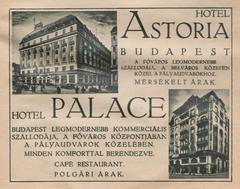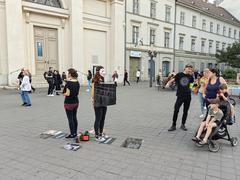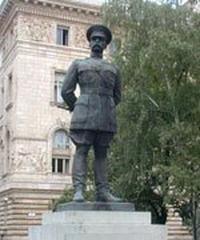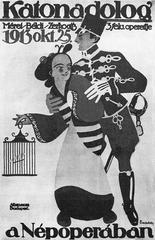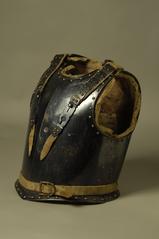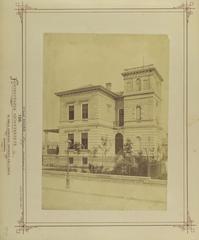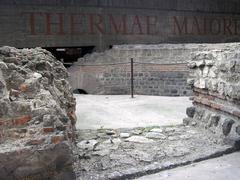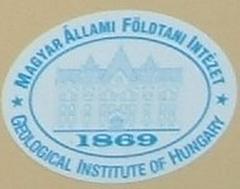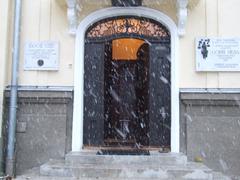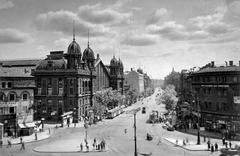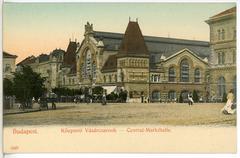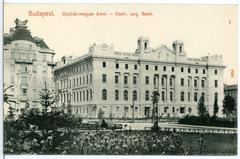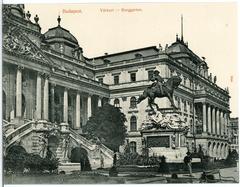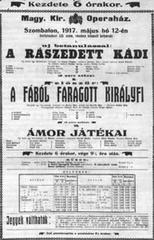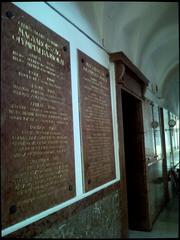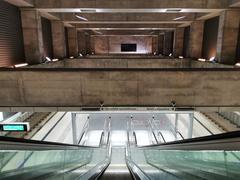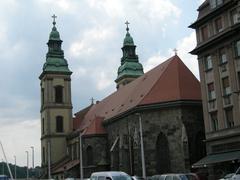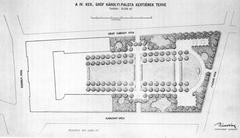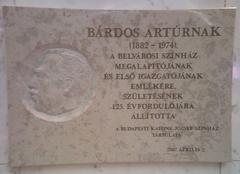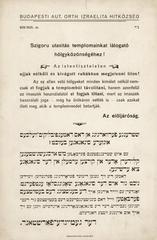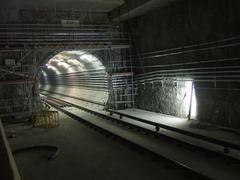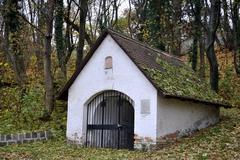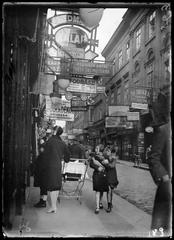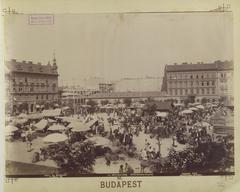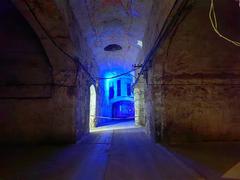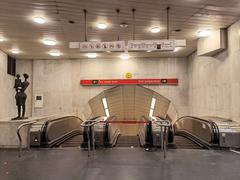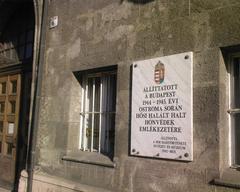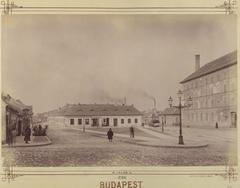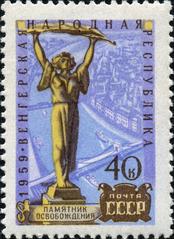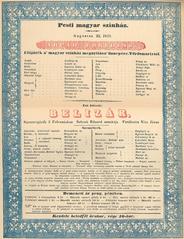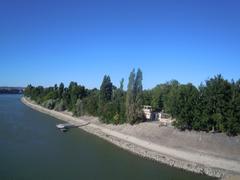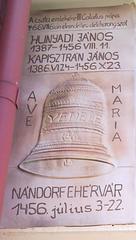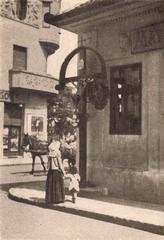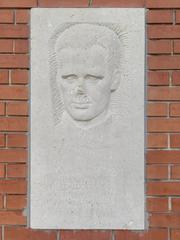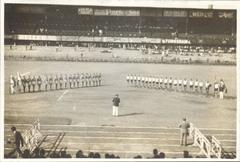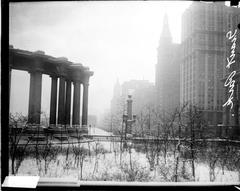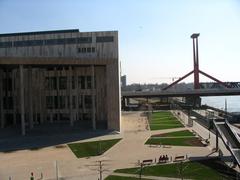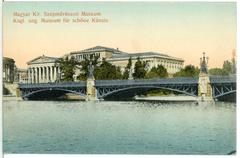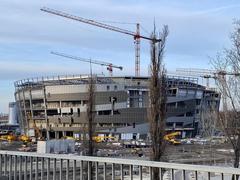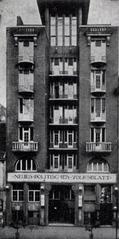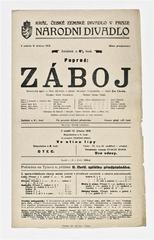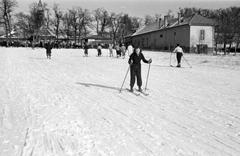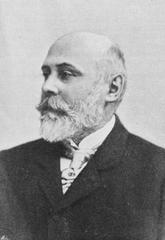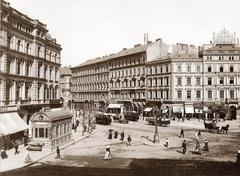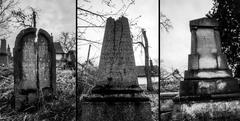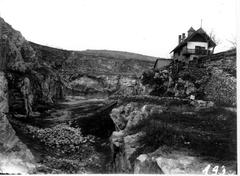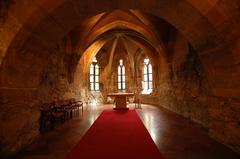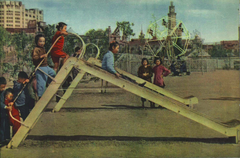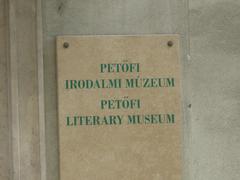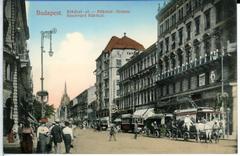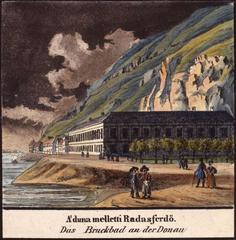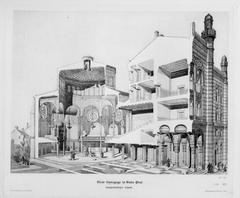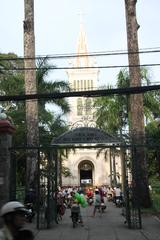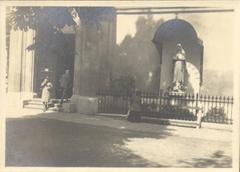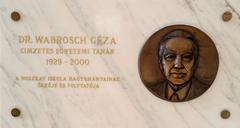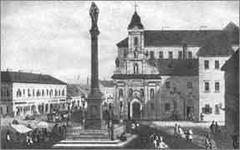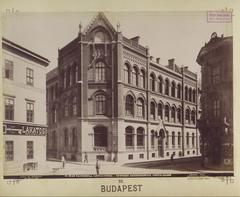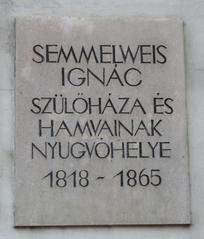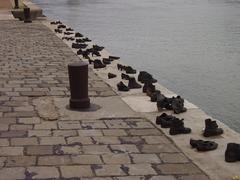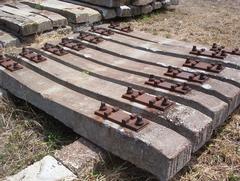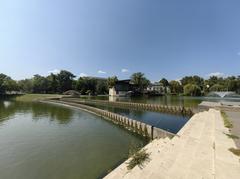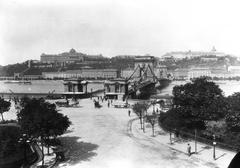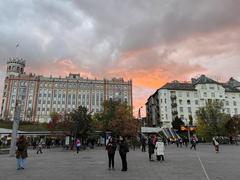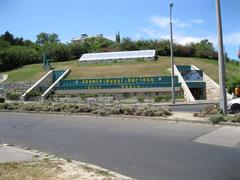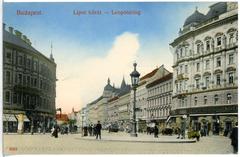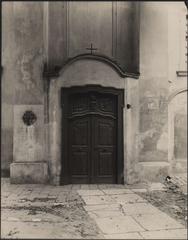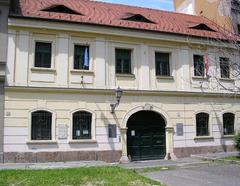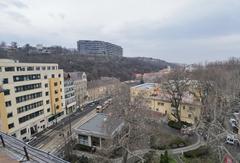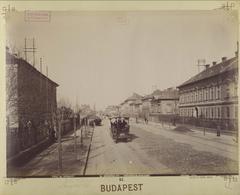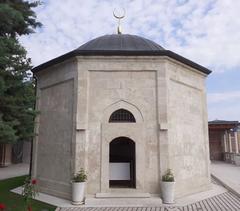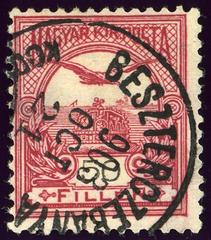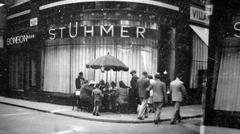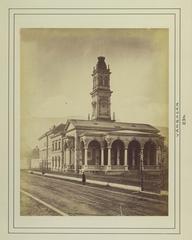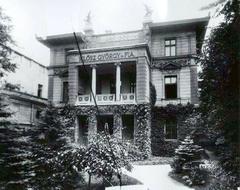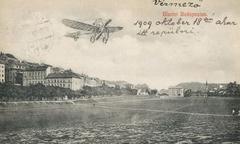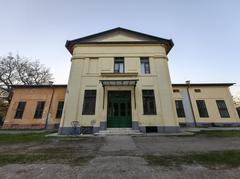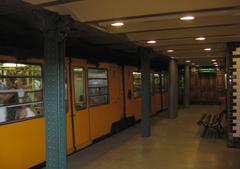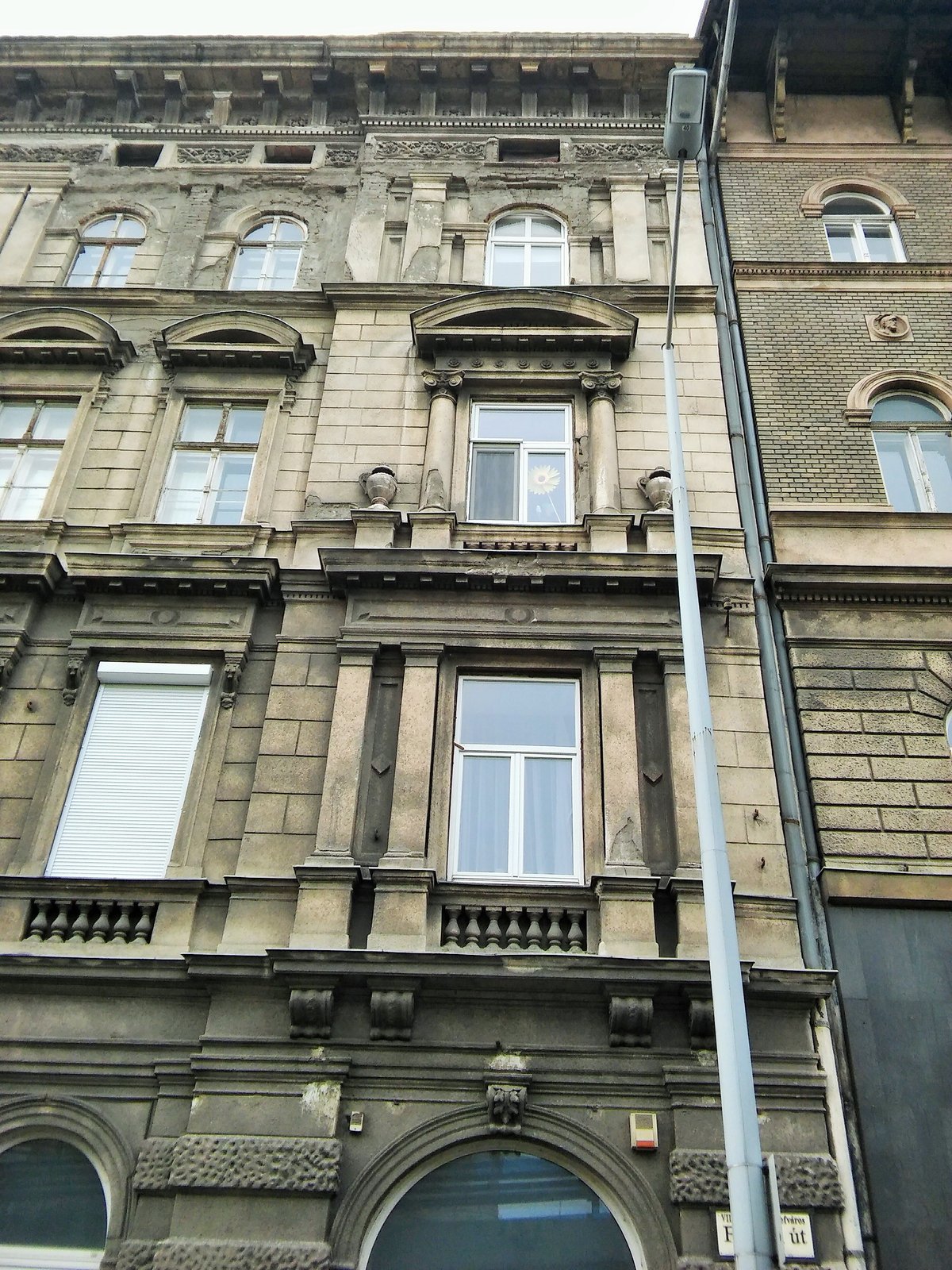
Fiumei Road Budapest: Visiting Hours, Tickets, and Historical Sites Guide
Date: 15/06/2025
Introduction
Fiumei Road Cemetery (Fiumei úti sírkert), also known as Kerepesi Cemetery, is one of Budapest’s most revered historical and cultural landmarks. Established in 1847, it is more than a burial ground—it is a “National Pantheon,” a living memorial to Hungary’s transformative history, artistic achievements, and national identity. Spanning 56 hectares, the cemetery combines neoclassical and art nouveau architecture, remarkable sculpture, and tranquil arboretum landscapes. As the resting place of many of Hungary’s greatest statesmen, poets, artists, and revolutionaries, Fiumei Road Cemetery offers visitors a unique portal into the nation’s rich past and evolving present (Thanos.org; Wonderful Wanderings; We Love Budapest).
Table of Contents
- Origins and Historical Development
- National Pantheon: Resting Place of Hungary’s Greats
- Architectural and Artistic Heritage
- National Memory, Symbolism, and Cultural Events
- Visiting Fiumei Road Cemetery: Hours, Tickets & Practical Tips
- Frequently Asked Questions (FAQ)
- Summary and Visitor Tips
- Sources
Origins and Historical Development
Founded in 1847 and officially opened two years later, Fiumei Road Cemetery’s inception coincided with the rise of Hungarian national consciousness following the 1848–49 War of Independence (Thanos.org). Conceived as a public burial ground for Pest (later part of Budapest), the cemetery quickly became a symbolic site of national remembrance. Its design, inspired by Northern Italian cemeteries, features grand arcades and elaborate mausoleums, echoing European artistic and architectural trends (Wonderful Wanderings).
The cemetery’s earliest burials included composer Béni Egressy and poet Mihály Vörösmarty. Over the decades, Fiumei Road expanded into an expansive, landscaped arboretum, serving as a repository of Hungary’s national memory (We Love Budapest).
National Pantheon: Resting Place of Hungary’s Greats
Fiumei Road Cemetery is often called Hungary’s “National Pantheon,” as it is the country’s foremost national memorial. Among those interred here are:
- Count Lajos Batthyány: Hungary’s first Prime Minister, martyred after the 1848–49 revolution.
- Ferenc Deák: “Sage of the Nation”; key architect of the 1867 Austro-Hungarian Compromise.
- Lajos Kossuth: Revolutionary leader whose mausoleum is the cemetery’s largest.
- Endre Ady: Influential anti-war poet.
- Attila József: One of Hungary’s greatest 20th-century poets.
- Imre Kertész: Nobel Prize-winning author.
- Mihály Munkácsy: Renowned painter.
The cemetery is a pilgrimage site for those wishing to honor the memory and achievements of Hungary’s most influential figures (Thanos.org; We Love Budapest).
Architectural and Artistic Heritage
Fiumei Road Cemetery is a showcase of Hungarian funerary art and architecture. Its highlights include:
- Kossuth Mausoleum: Monumental granite and bronze structure completed in 1903, adorned with allegorical sculptures (secretattractions.com).
- Deák and Batthyány Mausoleums: Honoring leading statesmen, these structures are focal points for national remembrance.
- Arcades: Italian-inspired, built between 1908 and 1911, housing graves of notable artists and thinkers (wikipedia).
- Apponyi Funerary Coach: Preserved historic vehicle used in state funerals.
- Special Parcels: Areas dedicated to those denied church funerals and adjacent Jewish cemetery.
The cemetery’s landscaped grounds, home to mature trees and over 110 bird species, further enhance its serene, reflective atmosphere (en.nori.gov.hu).
National Memory, Symbolism, and Cultural Events
Fiumei Road Cemetery functions as an open-air history book, reflecting Hungary’s journey from the Age of Dualism through to the present day. Key memorials honor the 1848–49 War of Independence, the 1956 Revolution, and the victims of two world wars (Significant Cemeteries).
The cemetery is a venue for state ceremonies, public commemorations (like All Saints’ Day on November 1), and educational programs. Managed by the National Heritage Institute (NÖRI) since 2016, Fiumei Road hosts over 40 themed events annually, including history walks, concerts, and art exhibitions (Thanos.org; hungarianconservative.com).
In recent years, projects like the “Gardens of 80” and public art installations have transformed the site into a symbol of peace and reconciliation (Significant Cemeteries). The annual “Struggle of Our Ancestors Is Transformed into Peace Through Remembrance” program further highlights the creative legacy of those interred here.
Visiting Fiumei Road Cemetery: Hours, Tickets & Practical Tips
Location and Access
- Address: Fiumei Road 16-18, 1086 Budapest, Józsefváros district
- Public Transport: Easily reached via Metro line 2 (Keleti pályaudvar), trams, and buses. The main entrance is a 10-minute walk from Keleti Station (en.nori.gov.hu).
- Cycling: Nearby BuBi bike-sharing stations.
Opening Hours
| Month | Opening Hours |
|---|---|
| January, February | 7:30 am – 5:00 pm |
| March | 7:00 am – 5:30 pm |
| April | 7:00 am – 7:00 pm |
| May–July | 7:00 am – 8:00 pm |
| August | 7:00 am – 7:00 pm |
| September | 7:00 am – 6:00 pm |
| October | 7:00 am – 5:00 pm |
| November, December | 7:30 am – 5:00 pm |
Note: Hours may vary on public holidays. Office hours: Mon–Thu 8:00 am–4:30 pm, Fri 8:00 am–4:00 pm (en.nori.gov.hu).
Admission and Tickets
- General Admission: Free for individual visitors.
- Guided Tours and Thematic Walks: Fees may apply; prior booking is recommended. Tickets can be purchased onsite at the Infopont (cash only) or via the official website.
- Special Exhibitions: May require separate tickets (muzej.hu).
Facilities and Accessibility
- Paths: Main avenues are paved and accessible for wheelchairs and strollers; some older paths may be uneven.
- Rest Areas: Benches and shaded spots available.
- Restrooms: Near the main entrance and office.
- Maps & Signage: Free bilingual maps; clear signage.
- Parking: Limited spaces near main entrance.
- Assistance: Staff support for visitors with mobility needs.
Guided Tours
- Languages: Hungarian and English.
- Duration: 60–90 minutes.
- Group Size: Small groups for a personalized experience.
- Booking: Recommended via phone (+36 1 323 5229) or online.
- FiumeiGuide App: Offers interactive, multilingual tours.
Visitor Tips
- Best Time to Visit: Early mornings or weekdays for tranquility.
- Dress: Comfortable shoes and respectful attire.
- Weather: Bring water and sun protection in summer.
- Photography: Allowed for personal use; please be discreet during ceremonies.
- Etiquette: Observe silence and respect for the cemetery’s active functions.
Nearby Attractions
- Hungarian National Museum
- Keleti Railway Station
- Erkel Theatre
- Arena Mall
- Puskás Aréna
Frequently Asked Questions (FAQ)
Q: What are the opening hours?
A: Vary seasonally; typically 7:00–8:00 am to 5:00–8:00 pm. Check here for current times.
Q: Is there an entrance fee?
A: General admission is free; guided tours and exhibitions may require tickets.
Q: Are guided tours available in English?
A: Yes, but advance booking is recommended.
Q: Is the cemetery wheelchair accessible?
A: Most main paths are accessible; some older sections may be uneven.
Q: Can I take photographs?
A: Yes, for personal use.
Q: Is parking available?
A: Limited parking is available; public transport is recommended.
Summary and Visitor Tips
Fiumei Road Cemetery is a cornerstone of Hungary’s national memory, art, and identity. Its grand mausoleums, symbolic monuments, and tranquil arboretum setting tell the story of a nation’s resilience and creativity. With free admission and comprehensive visitor services—including guided tours, multilingual resources, and cultural events—it is an inviting destination for all.
To enrich your visit:
- Consult official websites for current hours and tour availability.
- Use interactive tools like the FiumeiGuide or Audiala mobile apps.
- Explore nearby cultural sites for a fuller Budapest experience.
By engaging with Fiumei Road Cemetery, visitors both honor Hungary’s past and participate in its living heritage (National Heritage Institute; Significant Cemeteries; We Love Budapest).
Sources and Further Reading
- Fiumei Road Cemetery Budapest: Visiting Hours, Tickets & Historical Significance, 2025, Thanos.org
- Fiumei Road Cemetery: Visiting Hours, Tickets, and Exploring Budapest’s Historic Monument, 2025, Wonderful Wanderings
- Visitor Experience and Practical Information, 2025, National Heritage Institute
- Fiumei Road Budapest: Visiting Hours, Tickets, and Historical Sites Guide, 2025, Evendo
- National Pantheon: Resting Place of Hungary’s Greats, 2025, We Love Budapest
- Role in National Memory and Identity, 2025, Significant Cemeteries

